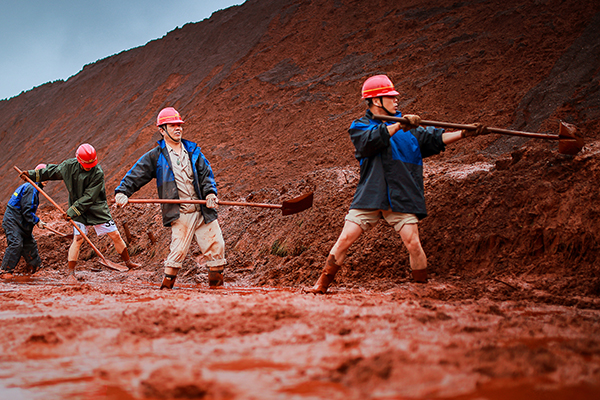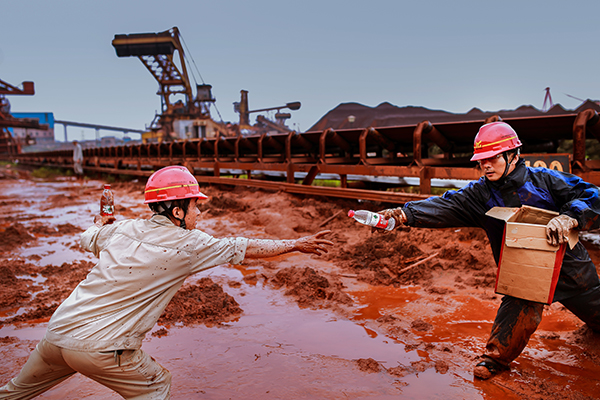 |
|
Workers of Magang (Group) Holding Co Ltd clear a cave-in of raw materials, caused by continuous rainstorms, in Ma'anshan, Anhui province. [Photo/China Daily] |
The continuous rainstorms along the Yangtze River are likely push up steel prices in the short term but won't have much effect on the prices in the long run, one analyst said on Thursday as steel producers reported improving conditions at plants where production was negatively affected.
The rainstorms, which started at the end of June, have affected 23 million people in central China, causing direct economic losses of 38.2 billion yuan ($5.7 billion), according to statistics from Ministry of Civil Affairs.
A survey conducted by mysteel.com found that 17 steel smelters in Jiangsu, Anhui, Hubei, Hunan and Jiangxi provinces have been affected.
It found that a total of 37,250 cubic meters of production capacity were shut down and 21 steel rolling lines suspended. Daily production has been cut by 57,800 tons, representing 25 percent of output of the affected businesses.
The survey said most of the smelters have around 10 days stocks of raw materials. It said steel stocks have been rising due to the suspension of shipping and raw material supplies have not been very high.
A spokesman for Wuhan Iron and Steel (Group) Corp said production processes had been affected to different degrees, including its coking, sintering, puddling operations and the company's steel rolling lines were affected by a power blackout.
 |
|
The continuous rainstorms along the Yangtze River are likely push up steel prices in the short term but won't have much effect on the prices in the long run. [Photo/China Daily] |
Spokesman Mei Yun said the plant had been partly flooded, but production was set to resume on Thursday night.
Rail transportation in parts of Ma'anshan, Anhui province, was suspended on Sunday in the face of rising water levels. Ma'anshan-based Magang (Group) Holding Co Ltd was at one point facing production suspension due to its low stock of coking coal, said company spokesman Lu Bin.
"New supply of coking coal arrived at the plant three days after the transportation suspension," Lu added. "The crisis has been resolved now."
The output reduction will push up the steel prices in the short run, an analyst said.
However, as production has been restored, the prices will return to normal levels, according to Hou Jiwei, analyst at 315.com.cn, a major bulk commodity e-commerce platform.
China's steel industry has been suffering from overcapacity. The State Council has set a goal to reduce crude steel output during the 13th Five Year Plan (2016-20) by 100 million tons to 150 million tons.
